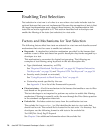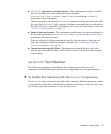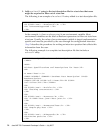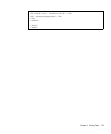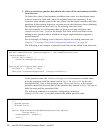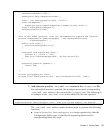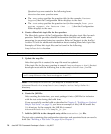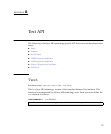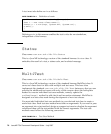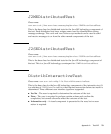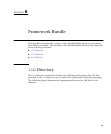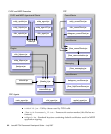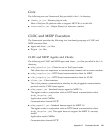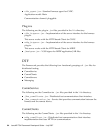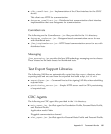
78 Java ME TCK Framework Developer’s Guide • July 2007
A test must also define main as follows:
Defining main in this manner enables the test to also be run standalone,
independent of the harness.
Status
Class name: com.sun.tck.cldc.lib.Status
This is a Java ME technology version of the standard harness Status class. It
embodies the result of a test, a status-code, and a related message.
MultiTest
Class name: com.sun.tck.cldc.lib.MultiTest
This is a Java ME technology version of the standard harness MultiTest class. It
serves as a base class for tests with multiple sub test cases. This base class
implements the standard com.sun.tck.cldc.lib.Test features so that you can
provide the additional test cases with only a little concern about the boilerplate
needed to execute individual test case methods, namely, update the
runTestCases() method to add check and invocation statement. MultiTest is
designed as a base class used during development of new test classes.
You must add individual test case methods to your derived test class to create a
useful test class. Each test case method must take no arguments. If you need to pass
an argument into a test method, design a wrapper test case to calculate the argument
values and then call the test method with the correct arguments. The test case
methods must follow the following convention:
CODE EXAMPLE A-2 Definition of main
public static void main(String[] args) {
Test t = new <test-class-name>();
Status s = t.run(args, System.err, System.out);
s.exit();
}
CODE EXAMPLE A-3 Test Case Method
public Status methodName()



